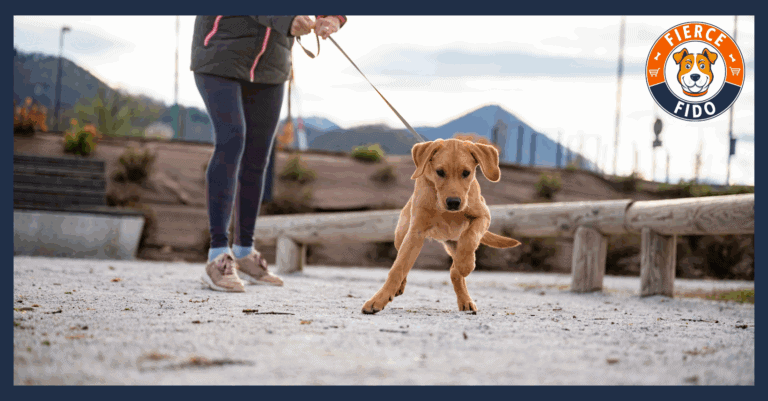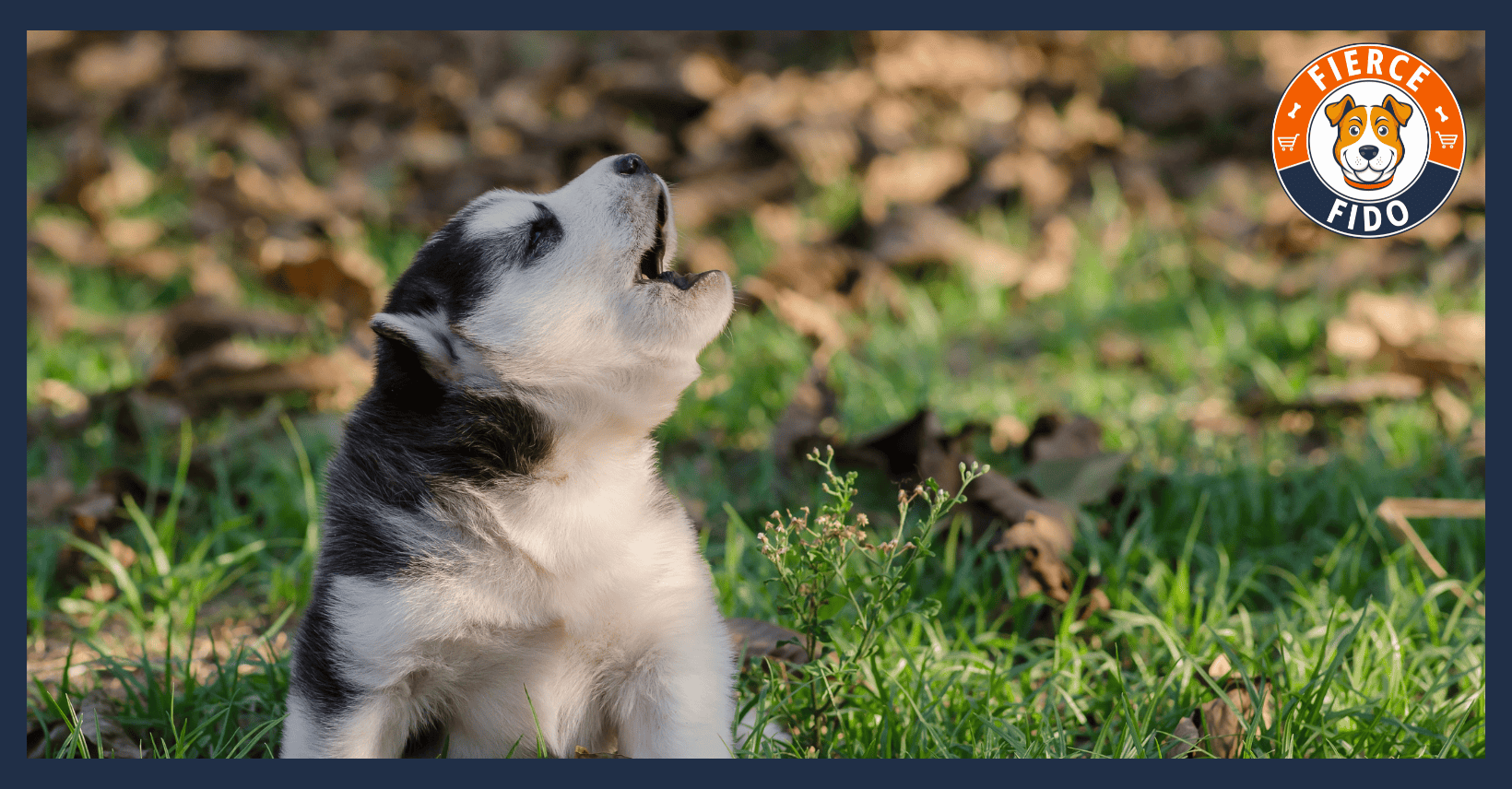

You grab your keys, put on your shoes, and head for the door; and then it starts.
That long, high-pitched howl from your dog echoes down the hallway. If you live with a dog who howls when you leave, you know this feeling all too well.
I’ve been there with my two: Sky, a husky mix with a talent for dramatic exits, and Puck, my border collie who learned the art of the howl from her. The minute I leave the house, the chorus begins. Luckily, they stop after a few minutes, but those first moments are always tough on both sides of the door.
Quick Answer: Dogs howl when you leave because they are social animals who feel anxious, lonely, or want your attention. Sometimes it’s a way to communicate their stress or ask you to come back. For many dogs, howling when left alone is a response to separation anxiety or a learned behaviour from another dog in the house.
If your dog is howling, you’re not alone, and there are ways to help your dog feel better and stop howling for attention.
Picture this: you say goodbye, close the door, and your dog’s howling fills the flat. It’s not just noise. It’s a message.
Howling is a form of communication. Your dog may howl to express their feelings, to call for you, or to respond to certain sounds.
Wolves howl to keep their pack together, and our dogs have inherited this instinct. When your dog is left alone, they may be trying to reach you, signal distress, or connect with another dog they can hear nearby.
Sky, my husky mix, was the first in our house to start howling. Her howl is piercing, a classic, high-pitched husky sound. Puck, our border collie, didn’t howl at first. But after a few weeks, he joined in. Now, when I leave, the duet begins.
Dogs howl for many reasons, but these are the most common when they’re left alone:
Howling is one of the oldest canine forms of communication. When your dog starts howling, they may be trying to tell you something important about how they’re feeling.
I remember the first time I heard Sky’s howl after we got Puck. It sounded desperate, almost like a cry for help. But after a few minutes, she calmed down. This is a classic sign of mild separation anxiety. Not all howling means a dog has separation anxiety, but it’s a common cause.
Dogs with separation anxiety may howl, bark, chew, or even try to escape when left alone. The behaviour starts when the owner leaves and often stops when the owner returns.
If your dog is howling only when you leave (and not at other times), you may be dealing with separation anxiety in dogs. Watch for these clues:
If your dog’s howling is paired with other signs of stress, it’s time to take action to help your dog.
Every howl tells a story. Some dogs howl for attention. Some howl to communicate with other dogs. Some may howl to alert you to something they hear. Knowing the type of howling can help you figure out why your dog is howling.
If your dog is left alone for long periods, howling may increase and become a habit. Dogs often repeat behaviours that get a response, even if it’s just your voice from the hallway.
I’ve spent plenty of time working on this with Sky and Puck. It’s not a quick fix, but with patience, you can reduce howling and help your dog settle when left home alone.
These expert tips will help you and your dog have a happier, quieter home:
You can stop your dog from howling, but it takes time and consistency. Teaching your dog to enjoy alone time is a skill like any other.
Dogs are social creatures, descended from wolves who lived in packs. When your dog is left alone, they may feel separated from their pack (you).
Sky and Puck both love being around people. When I’m home, they’re happy dogs. When I leave, the howling starts because they miss their pack. Dogs sometimes howl when they’re feeling isolated, especially if they’re used to having company all day.
If your dog doesn’t usually howl but starts suddenly, check for changes in the home. A new pet, a move, or a change in your schedule can trigger anxiety in dogs.
Some dogs howl when they hear the sound of a siren or other high-pitched noises. My two are triggered by emergency vehicles racing down our street. That kind of howl is different, it’s more of a “singalong” than a cry for help.
Howling in response to noises is normal for many dogs. If your dog only howls at a siren, it’s probably nothing to worry about.
But if howling happens every time you leave, or the dog starts howling for no clear reason, look for patterns to help you understand your dog’s behaviour.
If your dog’s howling feels out of control, don’t wait. Sometimes howling is a sign of pain or illness, so always consult a vet to rule out illness before starting behaviour modification.
A professional dog trainer or behaviourist can help your dog cope with being left alone. They’ll assess your dog’s behaviour and create a plan using counterconditioning and other techniques.
If your dog has separation anxiety, expert support can make a huge difference. Sometimes medication or special training is needed, especially for dogs with severe anxiety.
When your dog howls as you leave, they’re not being naughty, they’re talking to you. Sometimes, it’s a plea for company. Sometimes, it’s just their way of saying, “Don’t forget me!”
Dogs howl for many reasons, but you can help your dog feel safe, secure, and happy even when you’re not at home. With understanding, patience, and the right strategies, you’ll both enjoy more peace and less howling.
If you need extra support, don’t hesitate to reach out to a vet, behaviourist, or professional dog trainer. You and your dog deserve a happy, quiet life together, and when you’re apart.

Get exclusive deals, tips, and big dog banter—straight to your inbox.